
Rodgers and Hammerstein was a theater-writing team of composer Richard Rodgers (1902–1979) and lyricist-dramatist Oscar Hammerstein II (1895–1960), who together created a series of innovative and influential American musicals. Their musical theater writing partnership has been called the greatest of the 20th century.

Jane Powell was an American actress, singer, and dancer who appeared in Metro-Goldwyn-Mayer musicals in the 1940s and 50s. With her soprano voice and girl-next-door image, Powell appeared in films, television and on the stage, performing in the musicals A Date with Judy (1948), Royal Wedding (1951), Seven Brides for Seven Brothers (1954), and Hit the Deck (1955).
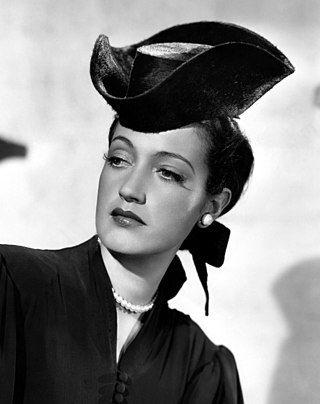
Dorothy Lamour was an American actress and singer. She is best remembered for having appeared in the Road to... movies, a series of successful comedies starring Bing Crosby and Bob Hope.
The Whistler is an American radio mystery drama which ran from May 16, 1942, until September 22, 1955, on the west-coast regional CBS radio network. The show was also broadcast in Chicago and over Armed Forces Radio. On the west coast, it was sponsored by the Signal Oil Company: "That whistle is your signal for the Signal Oil program, The Whistler." There were also two short-lived attempts to form east-coast broadcast spurs: July 3 to September 25, 1946, sponsored by the Campbell Soup Company; and March 26, 1947, to September 29, 1948, sponsored by Household Finance. The program was also adapted into a film noir series by Columbia Pictures in 1944.
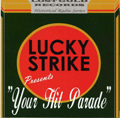
Your Hit Parade was an American radio and television music program that was broadcast from 1935 to 1953 on radio, and seen from 1950 to 1959 on television. It was sponsored by American Tobacco's Lucky Strike cigarettes. During its 24-year run, the show had 19 orchestra leaders and 52 singers or groups.

Margaret Eleanor Whiting was an American popular music and country music singer who gained popularity in the 1940s and 1950s.

Albert Gordon MacRae was an American actor, singer, and television and radio host. He appeared in the film versions of two Rodgers and Hammerstein musicals, Oklahoma! (1955) and Carousel (1956), and played the leading man opposite Doris Day in On Moonlight Bay (1951) and sequel By The Light of the Silvery Moon (1953).
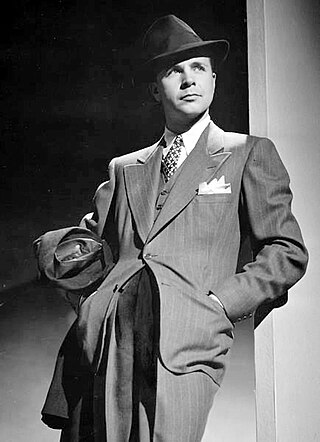
Richard Diamond, Private Detective is an American detective drama, created by Blake Edwards, which aired on radio from 1949 to 1953, and on television from 1957 to 1960.
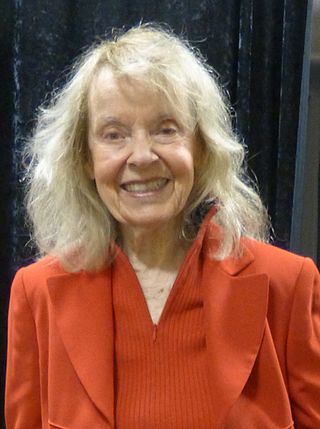
Janet Waldo was an American radio and voice actress. In animation, she voiced Judy Jetson in various Hanna-Barbera media, Nancy in Shazzan, Penelope Pitstop, Princess from Battle of the Planets, and Josie in Josie and the Pussycats. On radio, she was the title character in Meet Corliss Archer.
Information Please is an American radio quiz show, created by Dan Golenpaul, which aired on NBC from May 17, 1938, to April 22, 1951. The title was the contemporary phrase used to request from telephone operators what was then called "information" and later called "directory assistance".

Lux Video Theatre is an American television anthology series that was produced from 1950 until 1957. The series presented both comedy and drama in original teleplays, as well as abridged adaptations of films and plays.
The Halls of Ivy is an American situation comedy that ran from 1950 to 1952 on NBC radio, created by Fibber McGee & Molly co-creator/writer Don Quinn. The series was adapted into a CBS television comedy (1954–55) produced by ITC Entertainment and Television Programs of America. British husband-and-wife actors Ronald Colman and Benita Hume starred in both versions of the show.

"If You Were the Only Girl (In the World)" is a popular song, written by Nat D. Ayer with lyrics by Clifford Grey. It was written for the musical revue The Bing Boys Are Here, which premièred on 19 April 1916 at the Alhambra Theatre in Leicester Square, London. The song was originally performed as a duet between Lucius Bing, played by George Robey, and his love interest Emma, originated by Violet Loraine.
"Two Sleepy People" is a song written on September 10, 1938 by Hoagy Carmichael with lyrics by Frank Loesser.

Ford Star Jubilee is an American anthology series that originally aired monthly on Saturday nights on CBS at 9:30 P.M., E.S.T. from September 24, 1955, to November 3, 1956,. The series was approximately 90 minutes long, broadcast in black-and-white and color, and was typically telecast live. Ford Star Jubilee was sponsored by the Ford Motor Company.

Harvest of Stars is a concert music series, produced and directed by Glen Heisch and starring James Melton. Sponsored by International Harvester, the program was broadcast on NBC and CBS from 1945 to 1950.

Lucille Norman was an American mezzo-soprano, radio personality, and stage and film actress active in the 1940s and 1950s.
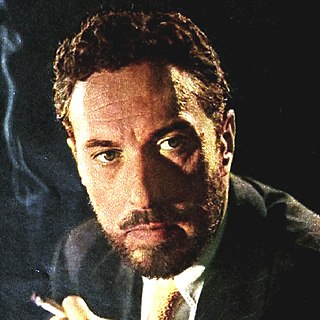
William Hannan Spier was an American writer, producer, and director for television and radio. He is best known for his radio work, notably Suspense and The Adventures of Sam Spade.

Dorothy Lorayne Warenskjold was an American lyric soprano who had an active career in opera, concerts, radio, television, and recitals from the mid-1940s through the early 1970s. She made several recordings for Capitol Records; other recordings were later released from restored material. Her career was marked by early success and later forgottenness. Former Chicago Symphony President Henry Fogel wrote, "Warenskjold was a fine lyric soprano who deserved a bigger career than she had."

Mr. Music is a 1950 film starring Bing Crosby and Nancy Olson, directed by Richard Haydn, and released by Paramount Pictures. It is based on the play Accent on Youth written by Samson Raphaelson. Filming took place from October to December 1949 in Hollywood.
















